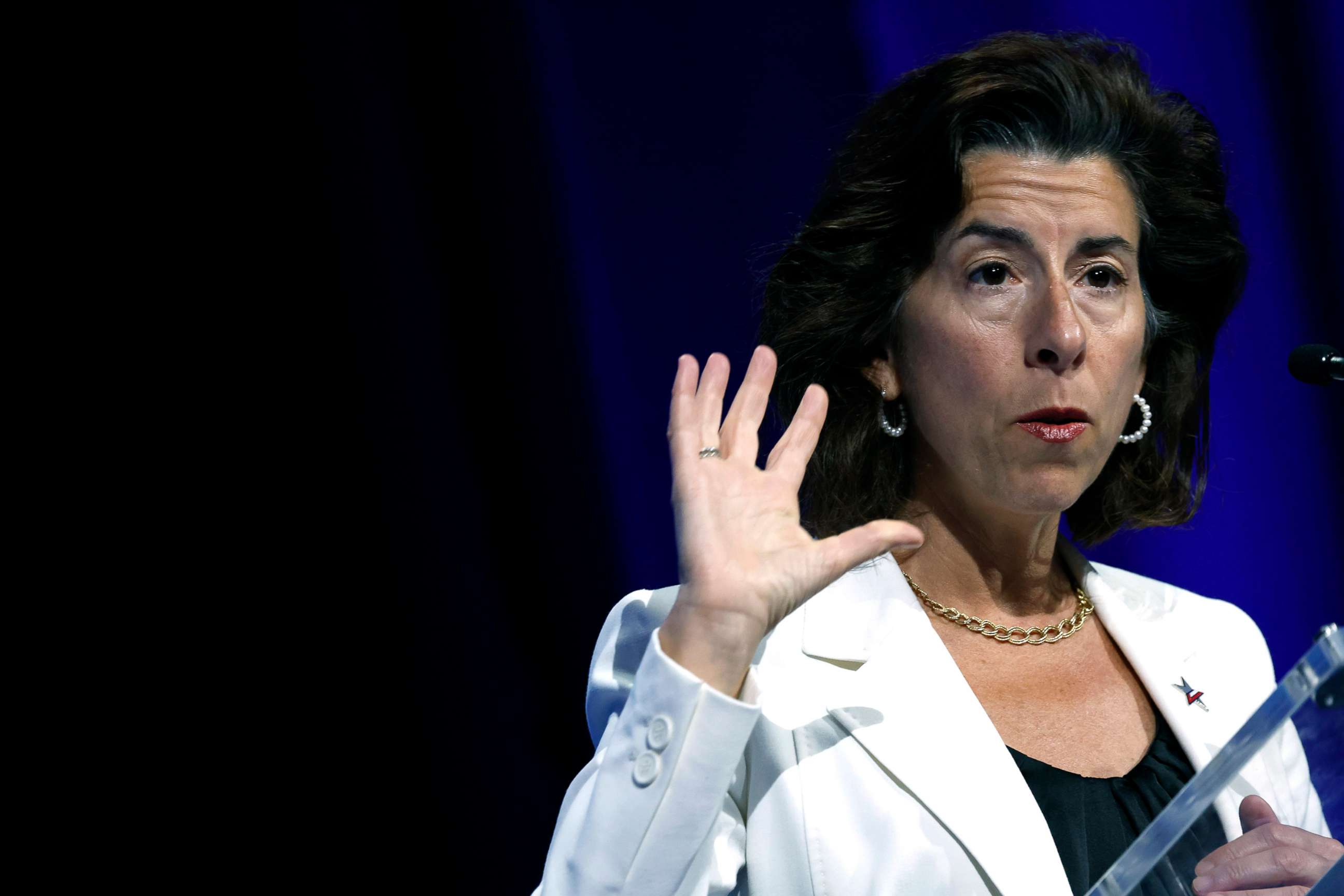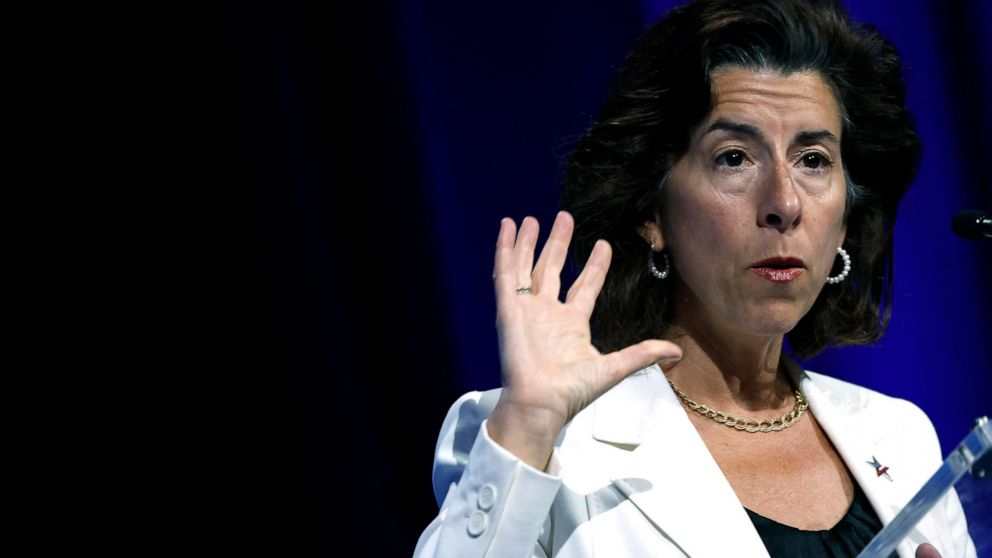No reason US 'will have a serious recession' but economy should cool, Gina Raimondo says
Following a stronger-than-expected jobs report released on Friday, the Biden administration is continuing to push back on fears of looming economic downtown while working to tame historic inflation.
"I don't see any reason to think that we will have a serious recession," Commerce Secretary Gina Raimondo told ABC "This Week" anchor George Stephanopoulos on Sunday when asked about the trajectory of future growth as the Federal Reserve signals further interest rate hikes to slow spending and demand.
Raimondo said the "fundamentals" of the U.S. economy are "very strong" and tackling inflation is "our top priority."
"We've recovered all the jobs since the pandemic. People's household balance sheets are strong," she said. "Companies are doing well. Companies are hiring, companies are growing."
She acknowledged the strain of inflation on daily life and said she expected the economy to "transition to a more traditional growth level," but said that the public should not "be talking ourselves into a recession."
The Bureau of Labor Statistics last week announced that 372,000 jobs were added in June -- nearly 100,000 more than economists had forecast -- and the unemployment rate remained steady at 3.6%.
Asked on Sunday by Stephanopoulos to explain divide between "the strong economic fundamentals" and the "lowest consumer confidence" in the economy in years, Raimondo said it points back to "one word."
"Inflation. … And people talk about it in different ways. But if you ask folks what they're worried about, they'll either say, 'Grocery store prices are high, food prices are high, energy prices, gas prices,' that's in people's daily lives."

"Until we do get a handle on inflation, I think it's natural for a family to be feeling that pinch," she added.
But the administration will "get a handle" on the rising cost of goods and services, she said.
Amid calls from within the Democratic Party to do more to combat inflation, Raimondo was pressed on what further actions President Joe Biden could be doing right now. But she turned some of the responsibility over to the Senate.
"Congress needs to pass the CHIPS Act," she said, referring to one of two bills that would help accelerate U.S. manufacturing of semiconductor chips. "That has to pass. Has to pass now. Not in six months from now. Now. It's bipartisan. [Senate Minority Leader] Mitch McConnell just threw a wrench in that about a week ago saying that he wasn't going to allow Republicans to move on that unless we move down reconciliation. That's a perfect example, George, of increasing supply. We have inflation now because of lack of supply."
"Doesn't that mean the CHIPS bill is dead?" Stephanopoulos asked Raimondo, echoing her point that McConnell has said he will block the legislation as long as Biden continues to push for a reconciliation spending bill over GOP objections.
"It shouldn't be dead. Why can't we do both?" Raimondo said. "It's a false choice. He's playing politics with our national security, and it's time for Congress to do its job on both of those dimensions."
Raimondo was also asked if she was confident in the effectiveness of the global price cap on Russian oil that Biden proposed, with Stephanopoulos pointing to "a lot of economists" who "are skeptical about whether that can really work."
"I think it can [work]," she said of a price cap. "Yes, I think it can."




